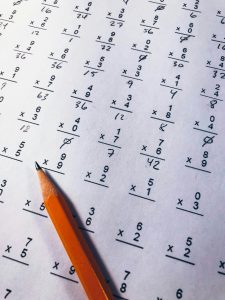Weekly Math Puzzle Challenges for Kids: Keep Them Engaged

Do you want to find a way to make learning math fun and engaging for your child? Look no further! Weekly math puzzle challenges can be the solution you’re searching for. These challenges are designed to keep your children excited about numbers while enhancing their problem-solving skills. In this article, we will explore the benefits of incorporating weekly math puzzle challenges into your child’s routine. From simple puzzles for kids to more advanced picture puzzles for 10-year-olds, there’s something for everyone. So let’s dive in and discover how these challenges can help your child develop a love for mathematics.
The Power of Puzzles in Mathematical Learning
Puzzles have been used as educational tools for centuries, and for good reason. They provide a hands-on approach to learning, allowing children to actively engage with mathematical concepts. By solving puzzles, children develop critical thinking skills, logical reasoning, and problem-solving abilities. Moreover, puzzles help children build perseverance and resilience as they tackle challenging problems. They learn that it’s okay to make mistakes and that perseverance leads to success.
Simple Puzzles for Kids
One of the best ways to introduce math puzzle challenges to your child is by starting with simple puzzles. These puzzles are designed to be accessible and enjoyable for young learners. Here are a few examples of simple puzzles for kids:
-
Mystery Number Challenge:
Present a series of clues about a mystery number and ask your child to deduce the number based on the given information.
-
Sudoku Showdown:
Organize a weekly Sudoku competition, providing puzzles of varying difficulty levels. Kids can work individually or in teams to complete the grids.
-
Math Scavenger Hunt:
Hide math-related items around the house and provide a list of questions that can be answered by finding and examining these objects.
Picture Puzzles for 10-Year-Olds
As your child’s math skills develop, you can introduce more challenging puzzles to keep them engaged. Picture puzzles are a great way to combine visual perception with mathematical thinking. Here are some examples of picture puzzles for 10-year-olds:
-
Tangram Tuesdays:
Challenge your child to create specific shapes or silhouettes using the seven pieces of a tangram puzzle.
-
Estimation Station:
Fill a jar with a large number of small items and ask your child to estimate the total number based on visual clues and mathematical reasoning.
-
Logic Puzzle Fridays:
Present a new logic puzzle each Friday, such as a “Which One Doesn’t Belong?” challenge or a “Find the Pattern” activity.
The Benefits of Weekly Math Puzzle Challenges
Incorporating weekly math puzzle challenges into your child’s routine offers numerous benefits beyond just improving their math skills. Here are some key advantages:
-
Developing Problem-Solving Skills:
By regularly engaging in math puzzles, children learn to approach problems systematically and think critically to find solutions.
-
Enhancing Logical Reasoning:
Puzzles require children to think logically and make connections between different elements, helping them develop analytical thinking skills.
-
Fostering a Love for Mathematics:
When children find joy in solving puzzles, they develop a positive attitude towards mathematics, leading to increased interest and motivation.
Weekly math puzzle challenges are a powerful tool to ignite a love for numbers in children. From simple puzzles for kids to picture puzzles for 10-year-olds, these challenges provide an engaging and enjoyable way to learn math. By incorporating these activities into your child’s routine, you can enhance their problem-solving skills, develop logical reasoning abilities, and foster a positive attitude towards mathematics. So why wait? Start planning your own weekly math puzzle challenges today and watch your child’s love for numbers grow!
SIP Abacus India offers world-class skill development programs that aim to unlock the mental potential of children through fun learning methodologies. Their programs focus on developing skills in mathematics and overall development. With the use of the abacus tool and visualization techniques, children can develop strong mental math abilities and improve focus, concentration, and attention span. These programs also enhance overall intelligence, learning ability, and academic performance while boosting confidence, self-esteem, and personality development. Studies show that children who complete the SIP Abacus program perform significantly better in math and reading at school. So consider enrolling your child in SIP Abacus to give them a competitive edge and nurture their academic and overall growth.



